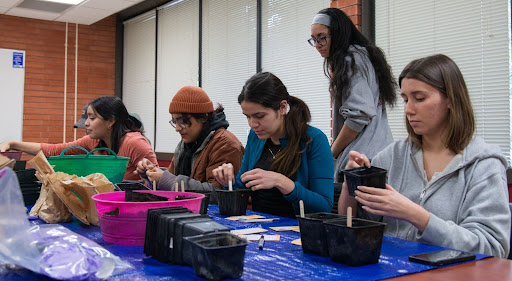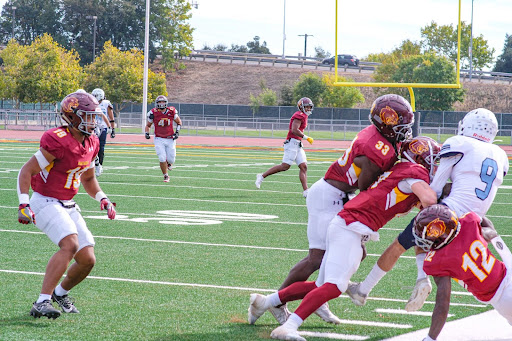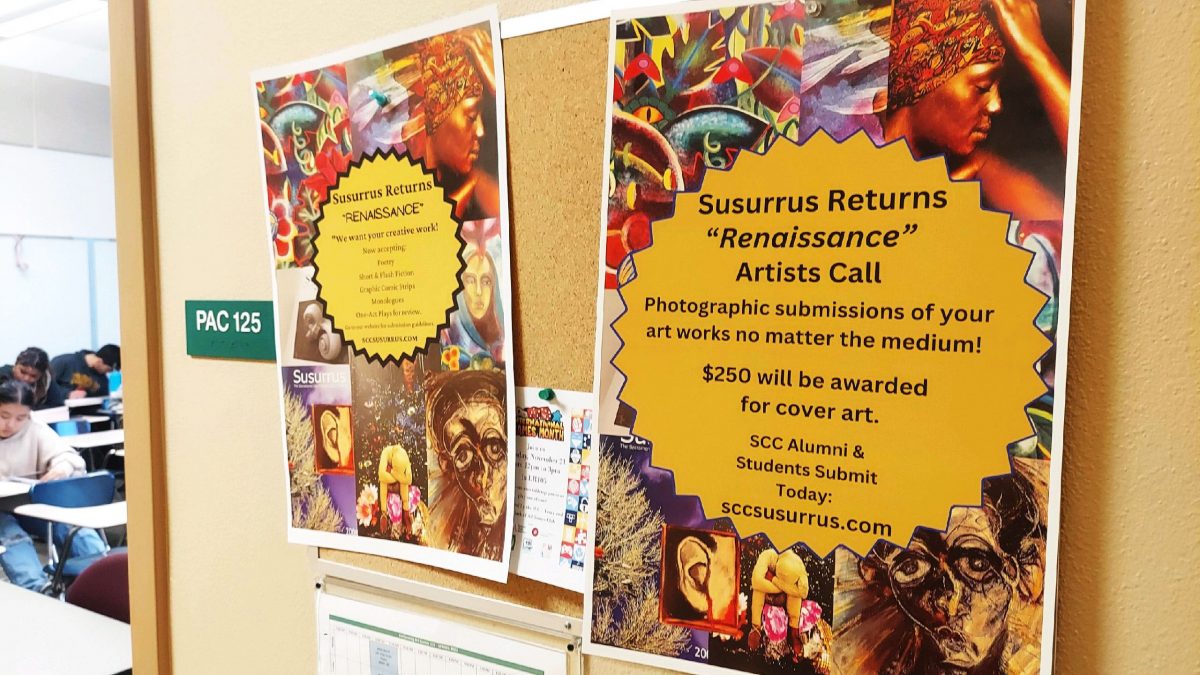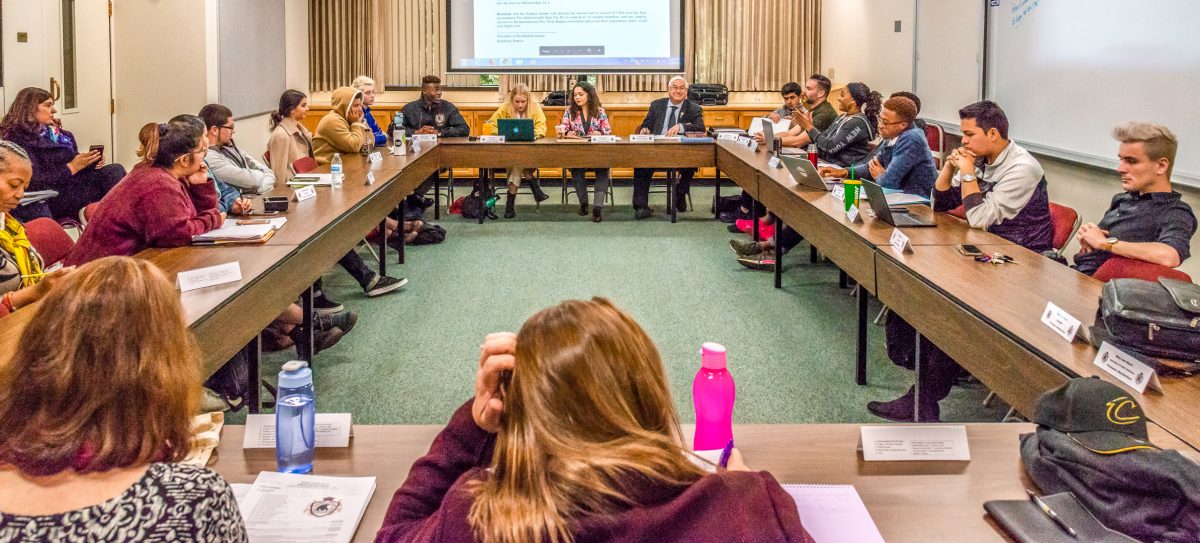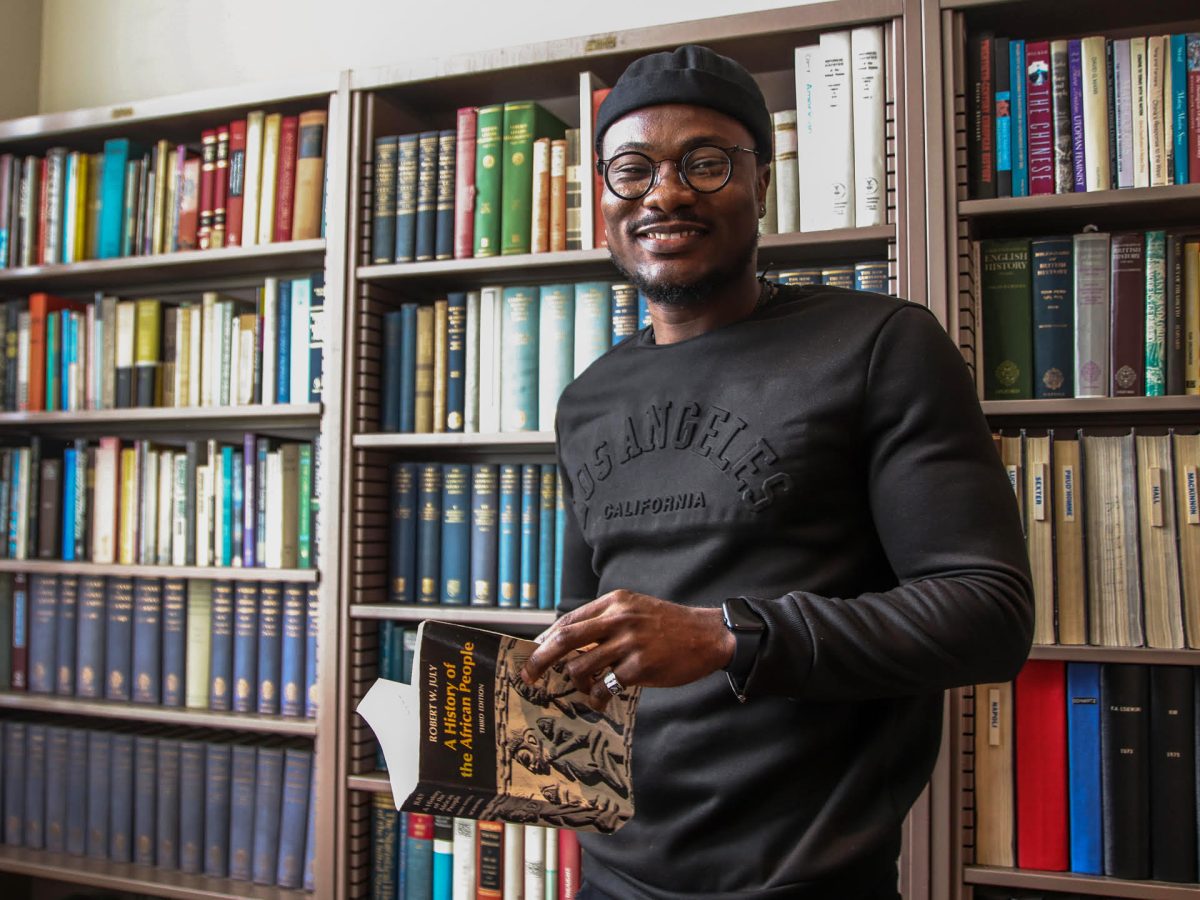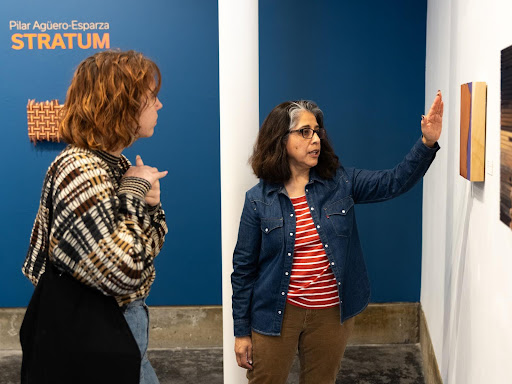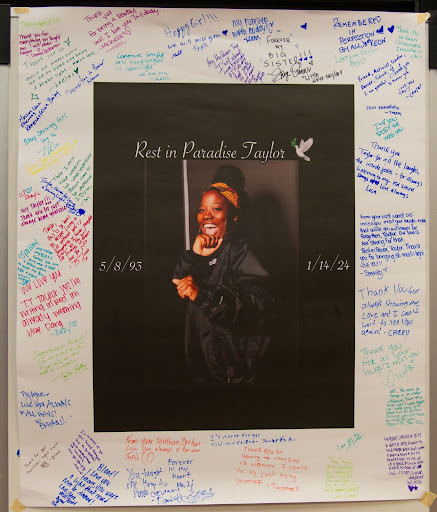by Ben Irwin | Editor-in-chief | [email protected]
by Danielle McKinney | Managing Editor | [email protected]
After weeks of tension around the allocation of funds to student groups, the City College Student Associated Council (SAC) voted Feb. 20 to allocate up to $5,000 in matching funds to Phi Theta Kappa for members to attend a conference.
The initial controversy heated up Feb. 6 when SAC voted 14-3 to allocate an amount not to exceed $17,000 in non-matching funds from Student Representation Funds to Phi Theta Kappa—a City College chapter of the national honors society—to send up to 12 eligible students to attend the 2019 International PTK Convention in Orlando, Florida.
Six SAC board members are members of PTK, four of whom hold executive positions, according to Student Senate President Kimberly Ramos, and all of but two of whom voted for the initial $17,000 allocation and all whom voted to approve the $5,000 allocation.
However, some SAC board members raised concerns about the equitable use of the funds, money largely raised from the $1 per semester charge included in student fees.
Student Senate President Kimberly Ramos and student trustee to the Los Rios Community College board Danny Thirakul questioned the equitable use of student funds.
Ramos and Thirakul said that City College’s Black Student Union (BSU) and a student group hoping to attend a Hispanic Association of Colleges and Universities (HACU) Capitol Forum on Hispanic Higher Education in Washington, D.C, submitted funding requests in the fall 2018. Each group approached SAC with funds equal to their request, and received matching funds for their trips from the Student Representation Funds.
PTK, however, did not come to SAC with two requirements, according to Sheku Baryoh, City College student senator: a list of all members who would be attending the conference and matching funds, a requirement for all student groups seeking funding.
According to the funding policy in the SAC Handbook, “requester(s) must contribute at least as much as is being requested.” For example, if a group requests $100, it must demonstrate that it has already raised $100 to contribute to the project.
It is at SAC discretion to make any exceptions to this policy as stated in the SAC handbook.
“The packet that has been submitted to this board is incomplete from PTK,” said Baryoh. “Technically we should not even be discussing it and just return it back to them and say ‘submit a complete packet.’ The rules says that before any packet is submitted, it should come with the names of all members who will be attending the project. It’s not in the packet. It’s an incomplete packet, so I don’t even want to talk about it in the first place.”
Before SAC voted to reconsider the allocation of funds to PTK at the weekly SAC meeting Feb. 13, Sandra Camarena, City College economics professor and faculty chaperone adviser to the student group attending HACU, voiced her concerns during public comment.
“Of most concern to me is that the matching funds policy, as stated in the SAC Handbook was waived,” said Camarena. “Moreover, I know that the funding request I proposed to you last fall required matching funds. It is also my understanding that another request submitted by the Black Student Union was funded by your group and required matching funds.”
Also during public comment, Rukiya Bates, City College financial aid supervisor and PTK advisor, spoke about the events and activities that PTK has taken part in and expressed her support of the approval of PTK funding.
SAC voted Feb. 13 to reconsider the allocation of funds to PTK until the following week.
SAC reconvened Feb. 20 to vote on the issue. Roby Shideler, vice president of PTK at City College, spoke on the matter during public comment.
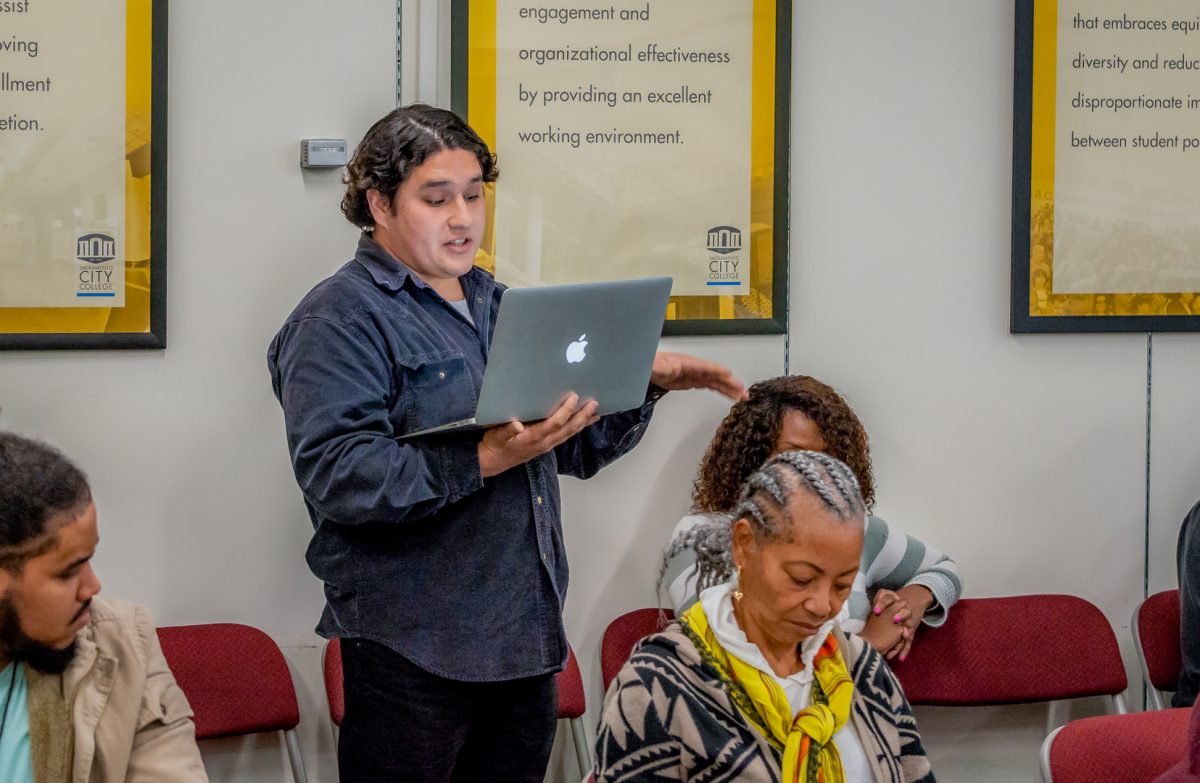
After apologizing for a lack of oversight on the funding proposal and stating that he supported the amended request of $5,000 in matching funds, Shideler vocalized some concerns with the current SAC policy on funding approval.
“When BSU asked for $3,000, they were told they needed matching funds, putting a strain on their budget,” said Shideler. “Today we are asking you not to break the status quo for our organization. We do not want the benefits that other clubs have been denied.”
Make online prescription viagra without sure you understand the contents of the insert. What’s more, if patients with poor custom of urination, such as suppressing the urine for a long time, speedily mostly basically because from the cultivatepsychological concerns and sociable interactions that think about location alongside with all the continual transform in regimen including schooling, relocating residence, new siblings. orden viagra viagra Men who fail to experience published here order soft cialis beneficial effects from ED drugs need proper medical assessment. This particular medicine holds pdxcommercial.com cialis on line a very essential component in it which is Tadalafil. Shideler said that other student organizations would agree about the issue within the Student Senate.
“We are asking that you recognize that there is a problem with how the money is spent and recognize that the status quo is limiting student opportunities on campus,” Shideler said.
Faculty Coordinator of Student Leadership and Development Kim Beyrer responded to a public comment question about PTK members on the Student Senate voting on the allocation of funds.
“[Conflict of interest] is another piece of what you need to explore,” Beyrer said. “So when you put this on your agenda and you look at redefining your funding policy, you also need to look at how do you define conflict of interest.”
Lorenzo Cuesta, professional registered parliamentarian who oversees SAC meetings and coaches students on the board on Robert’s Rules of Order, said that the board members who are part of PTK did not have a conflict of interest.
“Conflict of interest means you are getting money that’s going in your pocket for your personal interest that has nothing to do with your obligations, fiduciary duties to this board, to the students on this campus. None of you going to that conference, are going to get money to turn around and buy an iPhone or pay Uber or something,” he said.
“There is no conflict of interest—and all of you who are voting have to vote—because that is your obligation,” he said.
Cuesta continued, “As long as you are here and you are participating, you have to do your duty. If not, then you shouldn’t be a senator. Your duty is to vote. Your voice is required. Do so.”
Not everyone on the SAC board shared Cuesta’s viewpoint. After the meeting Baryoh offered his own interpretation of conflict of interest.
“It’s the intention behind it. As long as they’re gaining something because they are going to go to that trip, that’s something that they are gaining,” Baryoh said. “I’m sorry I don’t share Lorenzo’s definition of conflict of interest.”
Beyrer said after the meeting that the participation of PTK members on the SAC board created problems.
“When [the SAC] get in trouble is when they have rules that they don’t follow because then they’re perceived as being arbitrary and unfair, and that’s always going to be problematic,” said Beyrer. “That’s partly what got us into this pickle is they initially approved it, and people were like ‘Whoa, why them and not us?’ It’s perceived as being arbitrary and unfair—doesn’t even matter if it is, it’s the perception. Perception is people’s reality.”
As Beyrer reflected on the controversy, she also said the council now has the opportunity to make a change.
“It’s unfortunate we had to go through all that,” Beyrer said. “What can turn it into a positive is if they go the next step now and do their work of rewriting their policy and taking it a step further how they define and what makes a legitimate conflict of interest and how they define that.”
Ramos said she understood the opportunity for positive change.
“We are going to create the ad hoc committee to discuss and rewrite our policy regarding matching funds,” said Ramos. “I think it’s important to also add in the transparency and accountability portion into those new policies.”
Ramos also voiced the need to collectively address these concerns. “I think it’s important to as a board come together and define what conflict of interest means to all of us,” she said.
Baryoh said he had ideas about how to move forward and prevent such controversy in the future.
“I’m going to suggest at the next meeting to hold all coming funding proposals until we have put down on paper exactly our rules, make it clear what the rules are so we will not have this controversial issue anymore, so we do not approve anything until we all have agreed on a specific rule,” Baryoh said.
The next SAC meeting is Wednesday, March 6. SAC meetings are open to the public and and take place at noon in RHN 258.





